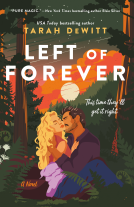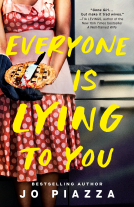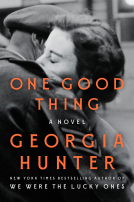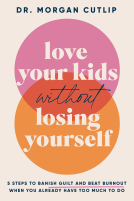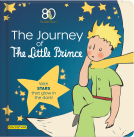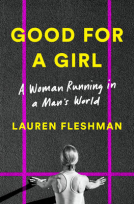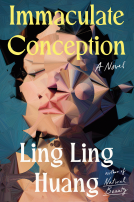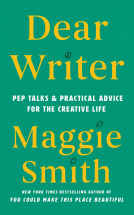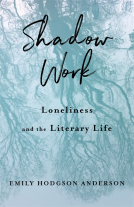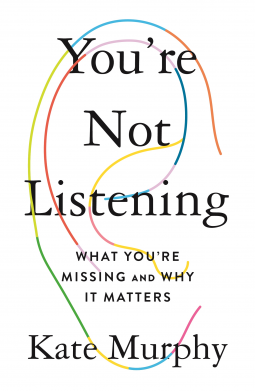
You're Not Listening
What You're Missing and Why It Matters
by Kate Murphy
This title was previously available on NetGalley and is now archived.
Send NetGalley books directly to your Kindle or Kindle app
1
To read on a Kindle or Kindle app, please add kindle@netgalley.com as an approved email address to receive files in your Amazon account. Click here for step-by-step instructions.
2
Also find your Kindle email address within your Amazon account, and enter it here.
Pub Date Jan 07 2020 | Archive Date Jan 21 2020
Talking about this book? Use #YoureNotListening #NetGalley. More hashtag tips!
Description
When was the last time you listened to someone, or someone really listened to you?
"If you’re like most people, you don’t listen as often or as well as you’d like. There’s no one better qualified than a talented journalist to introduce you to the right mindset and skillset—and this book does it with science and humor."
-Adam Grant, #1 New York Times bestselling author of Originals and Give and Take
**Hand picked by Malcolm Gladwell, Adam Grant, Susan Cain, and Daniel Pink for Next Big Ideas Club**
"An essential book for our times."
-Lori Gottlieb, New York Times bestselling author of Maybe You Should Talk to Someone
At work, we’re taught to lead the conversation.
On social media, we shape our personal narratives.
At parties, we talk over one another. So do our politicians.
We’re not listening.
And no one is listening to us.
Despite living in a world where technology allows constant digital communication and opportunities to connect, it seems no one is really listening or even knows how. And it’s making us lonelier, more isolated, and less tolerant than ever before. A listener by trade, New York Times contributor Kate Murphy wanted to know how we got here.
In this always illuminating and often humorous deep dive, Murphy explains why we’re not listening, what it’s doing to us, and how we can reverse the trend. She makes accessible the psychology, neuroscience, and sociology of listening while also introducing us to some of the best listeners out there (including a CIA agent, focus group moderator, bartender, radio producer, and top furniture salesman). Equal parts cultural observation, scientific exploration, and rousing call to action that's full of practical advice, You're Not Listening is to listening what Susan Cain's Quiet was to introversion. It’s time to stop talking and start listening.
Advance Praise
"An essential book for our times. How well we listen determines how we love, learn, and connect with one another, and in this moment when we need to hear and be heard more than ever, this thought-provoking and engaging book shows us how.”
-Lori Gottlieb, New York Times bestselling author of Maybe You Should Talk to Someone
"In an age when technology has made it easier than ever before to talk with each other, we’ve paradoxically become worse at listening. Fortunately, we have Kate Murphy to teach us how to reclaim this crucial skill. This book changed the way I think about communicating with the people who matter to me."
-Cal Newport, New York Times bestselling author of Deep Work and Digital Minimalism
Available Editions
| EDITION | Other Format |
| ISBN | 9781250297198 |
| PRICE | $32.00 (USD) |
| PAGES | 288 |
Links
Featured Reviews
This is such an important book. Listening is such a vital skill and lost art. The book is enjoyable to read, and I plan to buy a paper copy and make notes and highlights.
Thanks to NetGalley and the publishers for a digital ARC!
 Educator 600445
Educator 600445
The author provides great insights on the subtle art of active listening. It is true we speak at the pace of a hare and think at the pace of the tortoise and it would serve us well to reverse this practice. Reflective thought is almost always better than instinctive response and comes across as more genuine. This book is great if you are trying to be more mindful of yourself and empathetic of others in strengthening your communication skills. There is plenty of content and context throughout the book and in each concept for “soft” skill advice from the perspective of the author’s supporting arguments and further supported by science and research studies conducted in the areas of social, behavioral, developmental and neurosciene. This book is well researched and intelligently thought out.
I particularly enjoyed the chapters on sound and and gossip being “good for you” both fascinating reads. Sound and the impact it conveys when sending negative emotions and its effects and perception on those hearing the message is worthwhile to share for the simple fact of its multiplier effect towards further negativity and its destructive power. It is certainly a powerful lesson in considering how our words will impact others and the potential ripple effect for not just the potential negative outcomes but weighing against what value you expect to receive. The gamble is not worth it. The studies findings were stunning. “...employees were five times more upset by negative interactions at work as they were made happy by positive interactions.” WOW! Words are power, and negative words resonate far more deeply than equally positive statements.
Of course after reading the chapter on sound, I was intrigued when I came upon the chapter of gossip being good for you. An interesting thought to be sure! Gossip, in the right application, can serve as a positive social function despite its negative connotations. The author’s arguments and supporting research certainly make sense. Gossip supports our development as moral, ethical members of society. Further, Dutch researchers discovered that listening to positive gossip made people try to emulate similar behavior. Of course there is the flip side, negative gossip serves to make the speaker feel better about themselves. It is important to remember this and apply in context to the dynamics of the conversation when judging the truth and credibility to what is being said. Those who feel they need to brag or validate themselves to the discredit of others speaks more about them than the person they are speaking about. In this time of social media and online bullying these are critical messages to share with our youth early and often because the online media outlets quickly magnify a single action or post many times over. Adults and children alike can learn much from this. The first step, is to listen and learn before taking action and the premise of of this book.
Offering multiple tools and techniques, each focusing on the art of listening and its critical importance in conversation. This author effectively supports the key elements of effective and lasting communication: Listening is the more powerful position in effective communication. We learn when we listen. How we respond is the measure of a good listener and the measure of a person. Fundamental concepts behind management and leadership and a key concept I teach in management courses. I find this to be a complimentary read for students, supportive of soft skills development around active listening and effective communication. To be more effective, regardless of communication type, the other side must feel HEARD. The book offers multiple perspectives and tools for improving your current model and becoming a more effective leader and communicator.
 Cynthia F, Reviewer
Cynthia F, Reviewer
We are a nation of talkers but listening is a lost art. I've noticed, as a coach, since reading this book I let my athletes talk without interrupting a lot more. Kate Murphy is correct, people want to be listened to and heard. My personality is such that I tend to interrupt with my thoughts but I found letting them talk until they pause, I find out so much more about them and how they are feeling. I will be listening so much more after reading this. As the song in Hamilton says "talk less, listen more".
 sarah s, Librarian
sarah s, Librarian
First of all I am a horrible listener. It's not just that my mind wanders and I interrupt but I just dont know how and have not known how for so long it's like I can't control the words that escape my mouth and I take over the conversation and I hate it. Also my husband hates and probably everyone who talks to me. Having said that even if you're not a bad listener this book should be in everyone's hands. It is basically a life guide. Kate Murphy is a journalist and like most journalists she writes a very readable book. It's beyond the obvious. She talks about what listening really is and how to do it. In today's world we are compressed for time. We take information in bite sized chunks. We can't be bothered to watch a video if we know it's longer than 30 seconds we sigh or just close it.
It's a long lost skill but the people who are good at it, like professionals (in government, in politics) who need to get information (not including therapists because i've had many who just should not be paid to listen) and people who get hired to help focus groups- are really good at it and are highly coveted people.
And people who listen have the ability to make people feel understood and that's the true meaning of connection, something that as humans we all desire. I learned so much from this book. I learned about listening in general, like, keeping my big flapper shut and embracing the pauses and the silences as well as what happens when we listen to opposing viewpoints. People sometimes don't like to actually truly listen to opposing viewpoints because they worry that if they pay attention or really understand they will lose sight of their own view point (god forbid). Listening is about asking the important questions that get underneath the conversation to allow the speaker to get to a point they weren't even aware of. For example, if you were leading a focus group to find out if a supermarket should consider being open 24 hours asking a participant why they might shop at night they should ask the person to talk about the last time they shopped at night. Things like that.
Kate Murphy talked about motivation to speak, about people who are vying for attention and interrupt (a'hem) and how much more you get out when you really focus on the other person's words so you can develop each other's thoughts and both add to the conversation.
She even talks about gossip as not the negatively regarded pastime that it usually is. She says we are socialized by the gossip we hear from our family, friends, coworkers, teachers and religious leaders.
We use gossip to learn; the more upset you are by the gossip the more of a chance you won't repeat the same behavior.
She talked about the mechanics of the ear and why it's okay not to listen, despite choosing not to listen is a form of rejection. Air traffic controllers who have to be 100% listening and reading and aware of what's going on only have 90 minute shifts because that's all they can handle since listening drains you. So listen to people but know your boundaries. Also pay attention to the people you don't like listening to. Are they boring you? do they take forever to tell a story? Do they judge you? do you feel sucked dry after? think about those things and find out if it's saying something about the person or about yourself.
I totally recommend this book. There is a lot to learn.
An important book to read especially in this day where most people are content producers. This book tackles some really important points that are not just common sense or useful reminders—they really are fresh. What does it take to listen, to truly listen? The answer reveals plenty.
#YoureNotListening #NetGalley
Thank you the NetGalley, Edelweiss, and Macmillan for the E-arc copy of this book.
I know that I am not a good listener, but after reading this book I feel that there are changes that I can make to be less distracted in my listening capabilities. Personally, this book open up my "ears" to what I have been missing with people in my life. Excellent read even for someone, like myself, who isn't a huge non-fiction reader. A must read for everyone!
 Cathy M, Librarian
Cathy M, Librarian
I received a copy of "You're Not Listening" by Kate Murphy from the publisher in exchange for an honest review.
This is the most readable, entertaining, thought provoking non-fiction books I have read in ages.
We live in a world where technology offers us the ability to “connect” with people at any time of day or night, yet we are lonelier and more isolated than ever before. We value posting, pontificating, and preaching over understanding, comprehending, and embracing. NYT journalist Kate Murphy speaks to academic experts and professional listeners to explore how to become a good listener and all the benefits that ensue. You’re Not Listening is full of interesting analysis, humorous observations, and practical advice that will benefit any reader (& any listener)!
One suggestion: Carefully phrase your recommendation if you'd like your partner to read this book. Otherwise, they might laugh out loud!
One complaint: I wish this was published before January, so I could buy it for gifts in December.
 Melinda H, Librarian
Melinda H, Librarian
A good introduction to a prevalent problem. Murphy gives great details about why not listening is a problem and suggests some tips on how to become a better listener.
 Nelda B, Librarian
Nelda B, Librarian
Could easily be the best book I’ll read in 2020. I read this advice book on a cruise and put the information I learned about listening skills right to work. Amazing how much better I listen when I am not thinking about what I am going to say, instead of listening to the other person, and basing the conversation on what they are sharing. There are lots of good examples given in the book. And it is short enough that you’ll soon be a better listener. Put down that smart phone and talk to someone.
Readers who liked this book also liked:
Ling Ling Huang
General Fiction (Adult), Humor & Satire, Multicultural Interest


